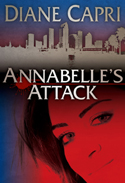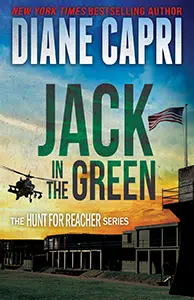If you loved Carly’s Conspiracy, you’ll enjoy Annabelle’s Attack, too. Let me share a bit Behind the Book with you.
Young lawyer Jenny Lane is hardworking and ambitious. She’s landed her dream job at a large Tampa law firm. She’s put her personal life aside for now and dedicated herself to work. Her career is taking off. She’s got nowhere to go but up. Today, she was given the opportunity to make her career an amazing success and she’s determined not to blow it. When Jenny puts her mind to it, she knows she can do anything. At least, she tries to believe her parents who’ve always inspired her with that mantra.
Immediately, the big assignment goes horribly wrong. Jenny finds herself mired in a bewildering case. A young woman is missing. Her new client believes the missing woman has stolen his formula for the cure for a fatal disease worth millions on the open market. And Jenny’s working life is turned upside down when she falls in love with the client’s son.
Will Jenny find the young woman before it’s too late? Will she give up her career for her new lover? Will this case destroy Jenny’s world as she knows it?
By now you know my books are based in real world situations. Annabelle’s Attack was inspired something my dermatologist said. “Did you know, Diane, that a person is five times more likely to get Hepatitis C from a tattoo in a tattoo parlor than from one he gets in prison?” I already knew HepC was a chronic blood condition that can not be cured. Tattoos have become so commonplace that everyone from teens to grandmas have them. How could I resist a fact like that?
What if a cure for HepC was nearly ready? How much money would that be worth on the open market? How far would someone go to cure themselves or their loved ones?
Click Here to download or sample Annabelle’s Attack to find out. And be sure to let me know what you think of the story. I’m looking forward to hearing from you. Enjoy!


